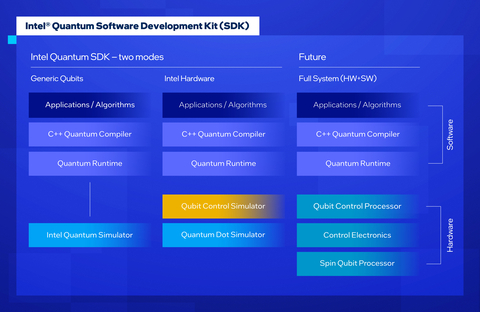
Intel today introduced version 1.0 of the Intel Quantum SDK, following the release of its beta version back in September of 2022.
The SDK comes as a full quantum computer in simulation that can also interface with Intel’s quantum hardware, including Intel’s Horse Ridge II control chip and Intel’s spin qubit chip after it becomes available later this year.
The kit also features a programming interface written in C++ using a low-level virtual machine compiler toolchain. The company stated that because of this, Intel’s SDK provides interfacing with C/C++ and Python applications.
“The Intel Quantum SDK helps programmers get ready for future large-scale commercial quantum computers. It will not only help developers learn how to create quantum algorithms and applications in simulation, but it will also advance the industry by creating a community of developers that will accelerate the development of applications, so they are ready when Intel’s quantum hardware becomes available,” said Anne Matsuura, director of quantum applications and architecture at Intel Labs.
With version 1.0, developers also gain a quantum runtime environment to help them execute hybrid quantum-classical algorithms.
The SDK also offers users the choice between two target backends for simulating qubits to either represent a higher number of generic qubits or Intel hardware.
The first backend is Intel Quantum Simulator, an open-source, generic qubit simulator and the second is a target backend that simulates Intel quantum dot qubit hardware and enables compact model simulation of Intel silicon spin qubits.
Additionally, version 1.0 of the SDK allows developers to create a small workload in order to determine what functionalities are required from the quantum computer’s system architecture to efficiently and accurately run algorithms on qubits.
Lastly, the SDK is customizable and expandable, allowing for heightened flexibility when developing quantum applications.






